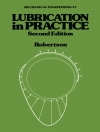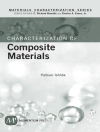In recent years, with the advent of fine line lithographical methods, molecular beam epitaxy, organometallic vapour phase epitaxy and other experimental techniques, low dimensional structures having quantum confinement in one, two and three dimensions (such as ultrathin films, inversion layers, accumulation layers, quantum well superlattices, quantum well wires, quantum wires superlattices, magneto-size quantizations, and quantum dots) have attracted much attention not only for their potential in uncovering new phenomena in nanoscience and technology, but also for their interesting applications in the areas of quantum effect devices. In ultrathin films, the restriction of the motion of the carriers in the direction normal to the film leads to the quantum size effect and such systems find extensive applications in quantum well lasers, field effect transistors, high speed digital networks and also in other quantum effect devices. In quantum well wires, the carriers are quantized in two transverse directions and only one-dimensional motion of the carriers is allowed.
Table of Content
Fundamentals of Photoemission from Wide Gap Materials.- Fundamentals of Photoemission from Quantum Wells in Ultrathin Films and Quantum Well Wires of Various Nonparabolic Materials.- Fundamentals of Photoemission from Quantum Dots of Various Nonparabolic Materials.- Photoemission from Quantum Confined Semiconductor Superlattices.- Photoemission from Bulk Optoelectronic Materials.- Photoemission under Quantizing Magnetic Field from Optoelectronic Materials.- Photoemission from Quantum Wells in Ultrathin Films, Quantum Wires, and Dots of Optoelectronic Materials.- Photoemission from Quantum Confined Effective Mass Superlattices of Optoelectronic Materials.- Photoemission from Quantum Confined Superlattices of Optoelectronic Materials with Graded Interfaces.- Review of Experimental Results.- Conclusion and Future Research.












